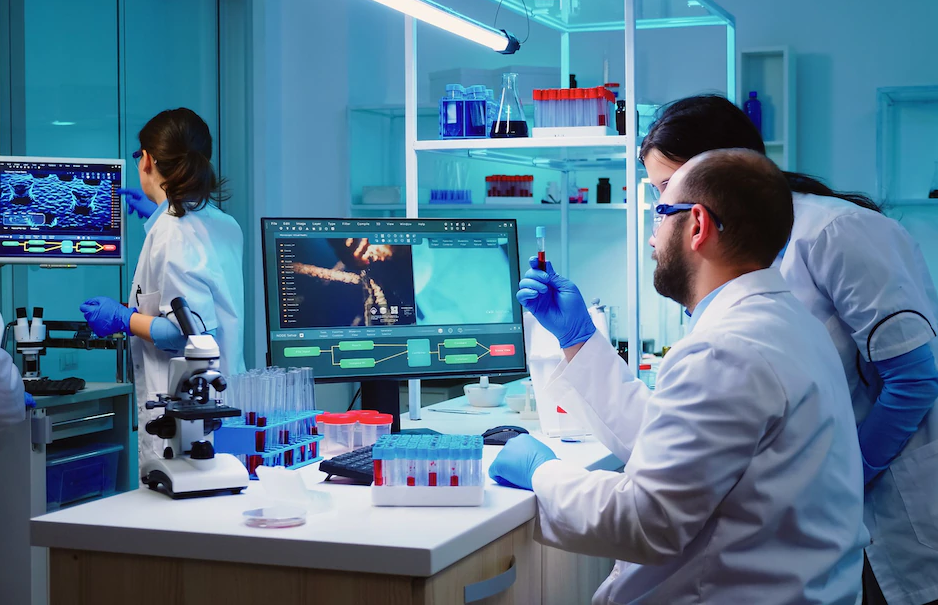How Does In Vitro Screening Support Targeted Cancer Therapies?
In this blog, we'll delve into the pivotal role of in vitro screening in supporting targeted cancer therapies

Cancer, a relentless adversary to human health, has long been a formidable challenge in the field of medicine. Traditional cancer treatments, such as chemotherapy and radiation therapy, often bring harsh side effects and collateral damage to healthy cells. However, hope shines through the realm of targeted cancer therapies, thanks to groundbreaking advancements in In vitro drug screening. In this blog, we'll delve into the pivotal role of in vitro screening in supporting targeted cancer therapies, shedding light on the promising future it holds for patients and the pharmaceutical industry.
Understanding In Vitro Drug Screening
Before we explore its role in targeted cancer therapies, let's grasp the concept of in vitro drug screening. In vitro, Latin for "in glass," refers to experiments or tests conducted outside the living organism, typically within the controlled environment of a laboratory. In the context of drug discovery, in vitro screening involves testing potential drug compounds on isolated cells or tissues to assess their efficacy and safety.
Precision and Personalization in Targeted Cancer Therapies
Targeted cancer therapies represent a paradigm shift in the approach to treating cancer. Instead of the one-size-fits-all approach of traditional therapies, targeted therapies focus on the unique genetic and molecular characteristics of each patient's cancer. This personalized approach aims to attack cancer cells with pinpoint accuracy while sparing healthy cells.
In vitro screening plays a pivotal role in making these therapies precise and personalized. Here's how:
Identifying Targetable Biomarkers: In vitro screening helps researchers identify specific biomarkers present in cancer cells. These biomarkers act as molecular flags that signal the presence of cancer and its vulnerability to particular treatments. Through meticulous testing, researchers can determine which drugs are most effective against cancer cells carrying these biomarkers.
Drug Screening for Efficacy: In vitro screening allows scientists to test a wide range of drug compounds to identify those that are most effective against the target biomarkers. This process streamlines drug discovery by eliminating less promising compounds early in the development phase.
Assessing Drug Toxicity: While targeting cancer cells is paramount, it's equally crucial to ensure the safety of these therapies for patients. In vitro screening helps assess the toxicity of potential drugs, helping researchers identify compounds that have a high therapeutic index—maximizing effectiveness while minimizing harm to healthy cells.
Predicting Patient Response: By analyzing how a patient's cancer cells respond to different drug candidates in vitro, oncologists can make informed decisions about the most suitable treatment options. This approach minimizes the guesswork involved in selecting the right therapy for an individual patient.
Monitoring Treatment Progress: In vitro screening isn't limited to drug discovery. It also serves as a valuable tool for monitoring a patient's response to treatment over time. Researchers can periodically analyze a patient's cancer cells in the lab to determine whether the therapy remains effective or if adjustments are necessary.
The Promise of TheraIndx: In Vitro Screening Excellence
In the quest to unlock the full potential of targeted cancer therapies, cutting-edge in vitro screening facilities play a pivotal role. Among these, TheraIndx stands out as a leader in the field, offering a comprehensive suite of in vitro screening services.
TheraIndx leverages state-of-the-art technologies and a team of experienced scientists to support drug discovery and development for targeted cancer therapies. Their dedication to precision and innovation enables pharmaceutical companies and researchers to accelerate the journey from drug candidate identification to clinical trials.
Here's what TheraIndx brings to the table:
Expertise in Cancer Biology: TheraIndx's team boasts deep expertise in cancer biology, allowing them to tailor in vitro screening assays to specific cancer types and biomarkers.
High-Throughput Screening: Their cutting-edge technology enables high-throughput screening of potential drug compounds, significantly expediting the drug discovery process.
Customized Assays: TheraIndx understands that each cancer is unique. They offer customized in vitro assays that align with the specific needs of researchers and pharmaceutical companies.
Quality and Precision: Quality control and precision are paramount in drug screening. TheraIndx maintains rigorous standards to ensure the accuracy and reliability of their screening results.
Ethical and Sustainable Practices: TheraIndx is committed to ethical and sustainable practices in drug development, aligning with the growing emphasis on responsible research and development.
In conclusion, in vitro screening is the unsung hero in the realm of targeted cancer therapies. It empowers researchers and oncologists with the tools they need to develop precision treatments that promise better outcomes and fewer side effects for cancer patients. TheraIndx, with its dedication to excellence and innovation, is at the forefront of this critical mission, bridging the gap between scientific discovery and patient care.
As we look to the future of cancer treatment, in vitro screening and pioneers like TheraIndx offer hope for a world where cancer is not only treatable but potentially curable, one patient at a time.

